This content contains affiliate links. When you buy through these links, we may earn an affiliate commission.
More nonfiction out this week that should be on your radar includes The Prison Industry: How It Works and Who Profits by Bianca Tylek and Worth Rises; To Save and to Destroy: Writing as an Other, the collection of essays from Pulitzer Prize-winning Viet Thanh Nguyen; and the humorous (but sobering) What to Expect When You’re Dead: An Ancient Tour of Death and the Afterlife by Robert Garland. And, if you want your humor with a dose of high society, there’s The Jane Austen Insult Guide for Well-Bred Women: Serving Tea with a Side of Scorn by Emily Reed.
Now as far as the featured books go, there’s a fantastical and queer (queer-er?) Great Gatsby retelling, queens of Appalachia, a book-saving cat in Japan, and a young woman with a…unique attraction.
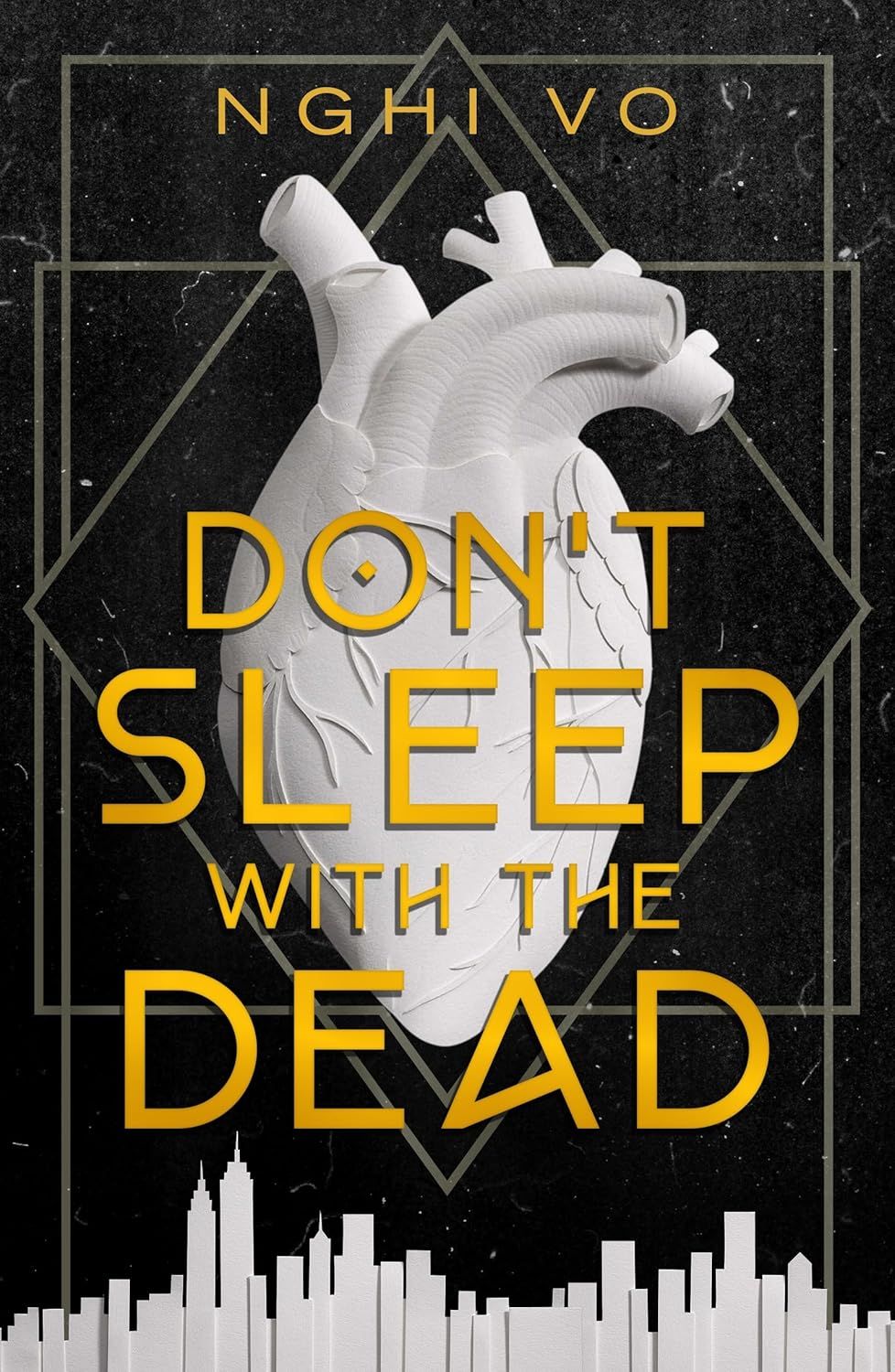

Don’t Sleep with the Dead by Nghi Vo
I’ve been a Vo devotee since I read The Empress of Salt and Fortune, the first novella in her Singing Hills Cycle series. With Don’t Sleep with the Dead, in addition to some pretty sound advice, Vo is giving us a companion novella to The Chosen and the Beautiful, her 2021 retelling of The Great Gatsby. This time, instead of following the queer Asian tennis player Jordan Baker, we’re focused on paper soldier and novelist Nick Carraway. Nick has become adept at watching the spectacle that is New York high society in the late ’30s, but what he doesn’t realize is that as he watches, something also watches him. His pretending to be straight—and even human—hasn’t gone unnoticed. What’s more, the events—and the people who may or may not have died—of that summer in 1922 aren’t quite done with him.
New Books
Subscribe to the New Books! newsletter to get weekly updates about new releases.
Transform your reading experience! Become an All Access member and unlock a treasure trove of exclusive content—must-read articles, deep dives, and curated recommendations—with unlimited access to 20+ members-only newsletters, community features, and more. Sign up now for only $6/month!
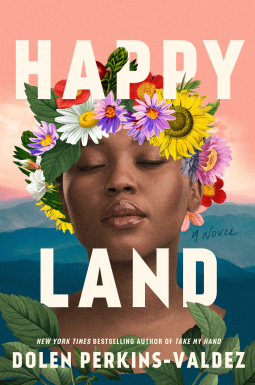

Happy Land by Dolen Perkins-Valdez
Here’s what I said about it before: Through Nikki, who has returned to North Carolina at the request of her estranged grandmother, we learn about past queens of Appalachia. During the visit, Mother Rita tells Nikki about her great-great-great-grandmother, Queen Luella, who lived on the very land they stand on. There was a kingdom called Happy Land, where formerly enslaved people made memories of African kingdoms flesh. Now, it’s up to Nikki to reclaim what they established, lest it be taken from her family like everything else.
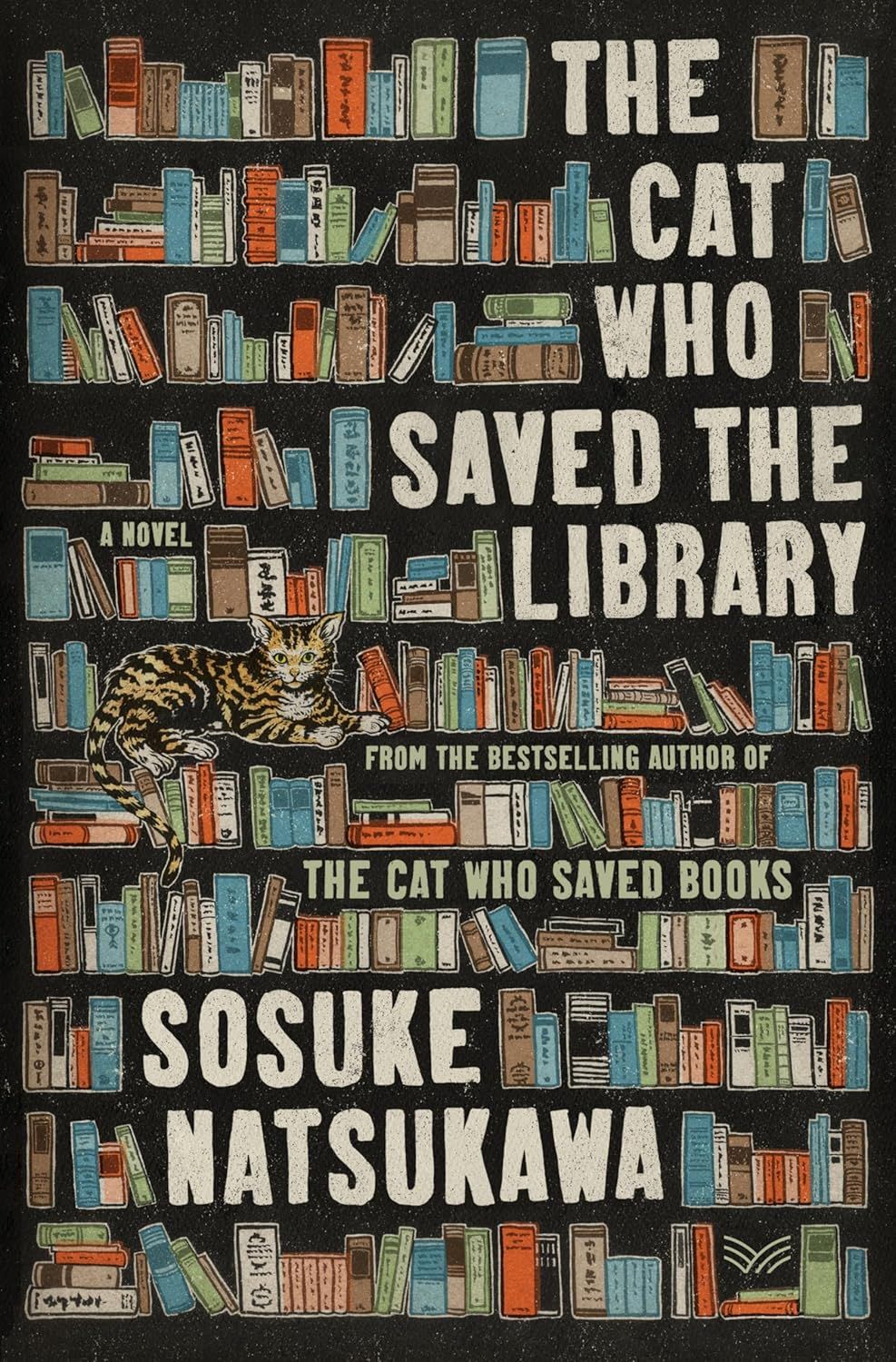

The Cat Who Saved the Library by Sosuke Natsukawa, translated by Louise Heal Kawai
In this follow-up to the bestselling The Cat Who Saved Books, we’re let into the world of 13-year-old Nanami, whose asthma prevents her from playing sports or hanging outside with friends. So, naturally, she reads. One day, she notices that some of her favorite books—many classics among them—have gone missing from the library. When she tells the librarians, they dismiss her, but then she sees a suspicious man in a gray suit and follows him. Her pursuit of him is thwarted by her asthma, and by the time she catches her breath, he’s gone. Enter Tiger, the talking tabby cat from the first book in the series who saves books. Books are being burned, and it’s up to Nanamin and Tiger to save them.
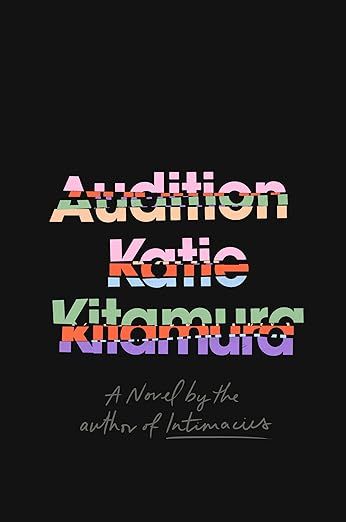

Audition by Katie Kitamura
Here, an accomplished actress and an attractive younger man meet for lunch in a Manhattan restaurant. Who they are to each other is a question that Kitamura’s narrative unfurls, except it extends the question to all relationships. It looks at the dynamics—or roles—we have with different people in our lives, showing how we’re constantly auditioning, even with people who think they know us best.
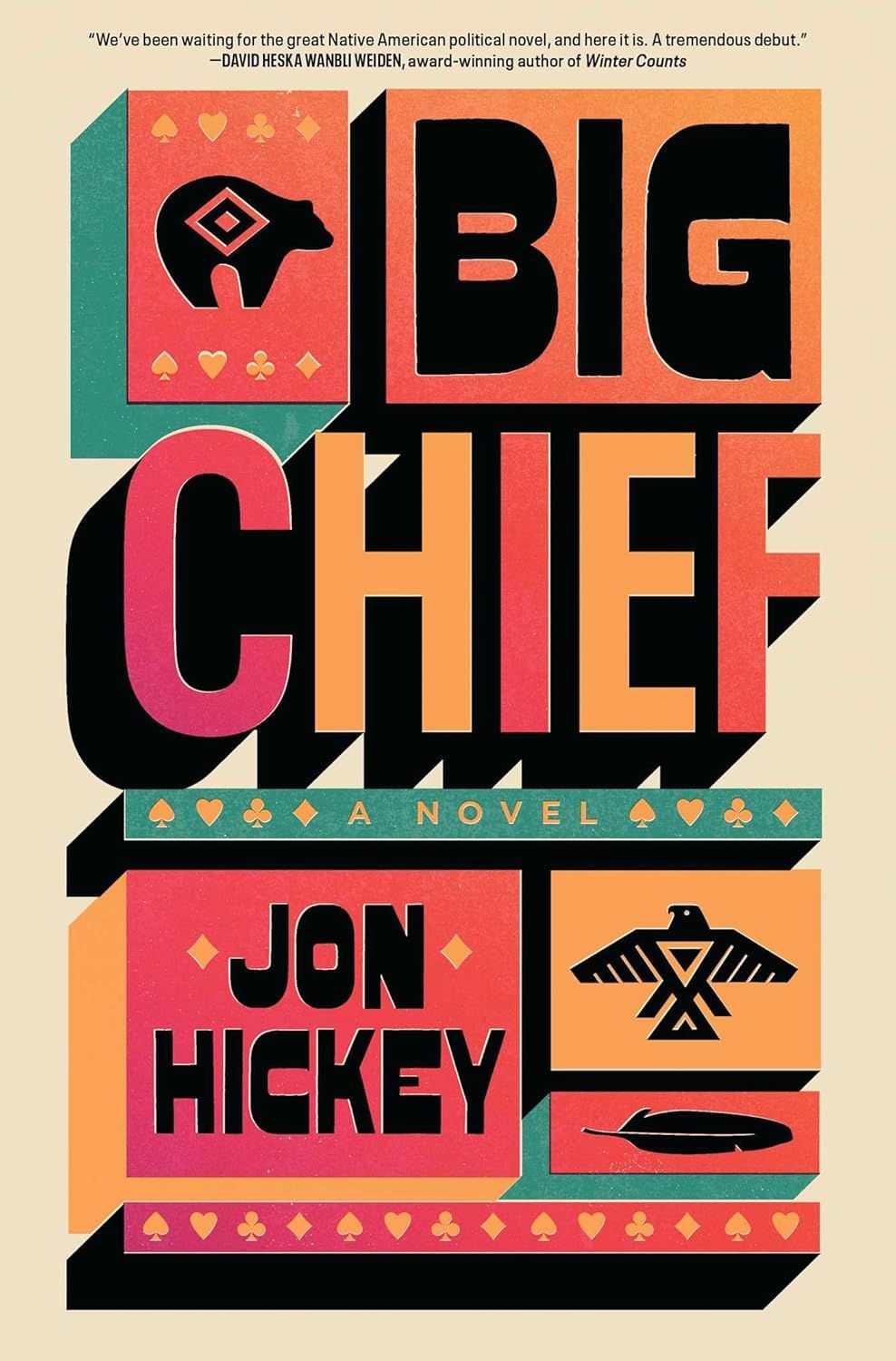

Big Chief by Jon Hickey
Mitch Caddo is a young law school graduate who, despite being an outsider in the land of his Anishinaabe ancestors, runs the government of the Passage Rouge Nation and the nation’s Golden Eagle Casino and Hotel with his childhood friend, Tribal President Mack Beck. Then Mack is up for reelection, and the people opposing him are the well-known activist and politician Gloria Hawkins and her young aide Layla Beck, who happens to be Mack’s estranged sister and Mitch’s former boo. As you might imagine, with politics—and family, and former lovers—things get heated. So much so that Mitch and Layla have to come together to stop the reservation from sliding into outright violent chaos, especially after Mitch’s mentor dies.
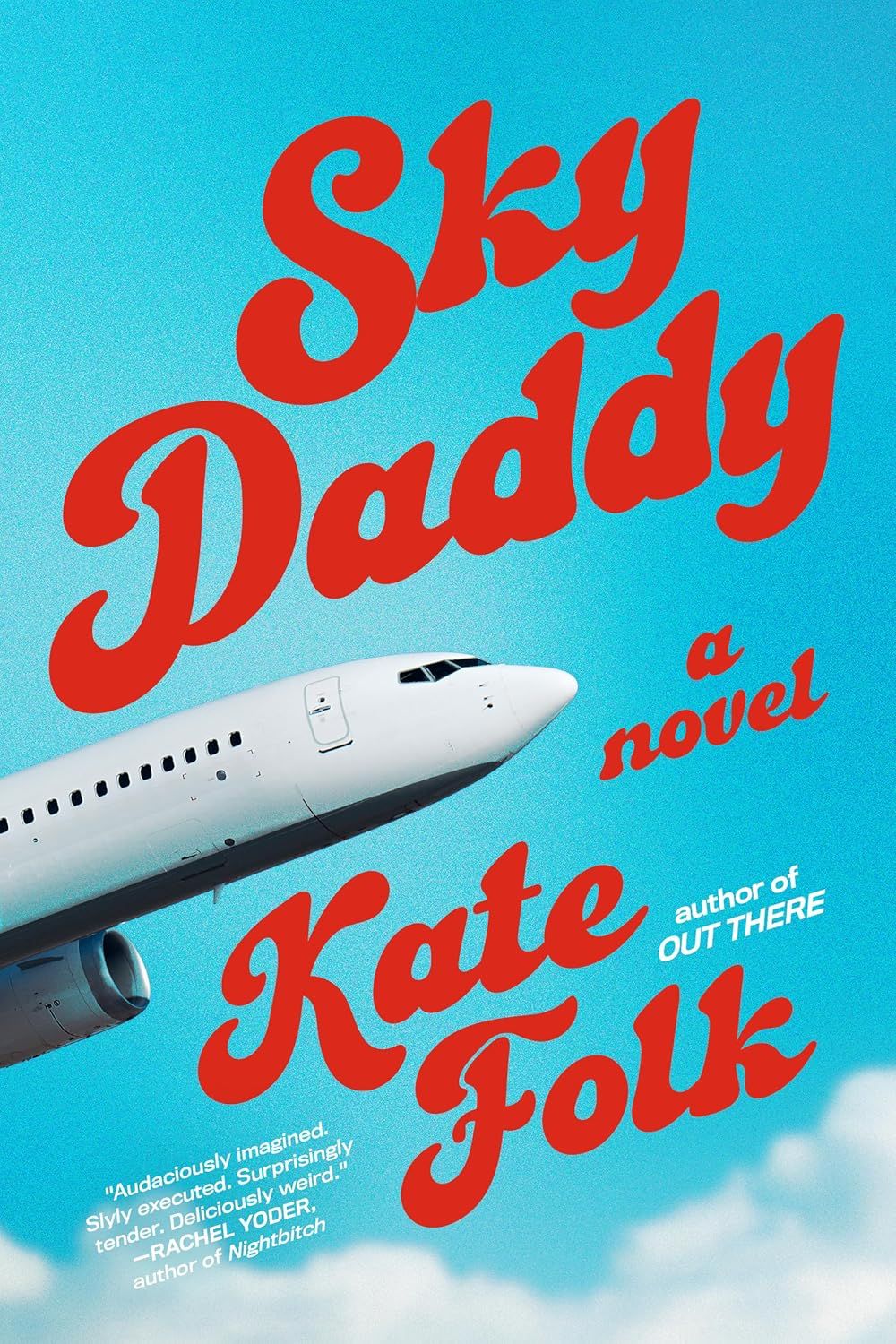

Sky Daddy by Kate Folk
Trust me when I say y’all aren’t ready for Linda. At first glance, she appears to be average and normal—which is by design. She earns a modest living through a social media management job during the day, then takes the bus home to a windowless garage she rents in San Francisco. Her real interest, though? Taking a round-trip flight to a regional hub every Friday. But it’s during the flight that she’s really living—the power and grandeur of each new plane she’s in makes her…all hot and bothered, let’s say. Yes, she is attracted to planes and thinks her destiny is to be united with one in eternity through a plane crash. But then she gets the chance to possibly make this happen. The question is: is she ready to give up the last vestiges of the “normal” life she’s constructed? And, can she handle her life spinning out of control as a result?
Other Book Riot New Releases Resources:
- All the Books, our weekly new book releases podcast, where Liberty and a cast of co-hosts talk about eight books out that week that we’ve read and loved.
- The New Books Newsletter, where we send you an email of the books out this week that are getting buzz.
- Finally, if you want the real inside scoop on new releases, you have to check out Book Riot’s New Release Index! That’s where I find 90% of new releases, and you can filter by trending books, Rioters’ picks, and even LGBTQ new releases!
The following comes to you from the Editorial Desk.
This week, we’re highlighting a post that celebrates the 100th anniversary of The Great Gatsby! Revisit F. Scott Fitzgerald’s classic (and emblem of assigned reading) and get a crash course on the book’s history, including challenges encountered by its readers and adapters. Read on for an excerpt and become an All Access member to unlock the full post.
January 16, 2025, marked the 100th anniversary of the publication of F. Scott Fitzgerald’s novel The Great Gatsby. The New York Public Library celebrated with a party, following a special performance of the Broadway musical adaptation of the novel. Simon and Schuster recently released a new audiobook with an introduction by Jesmyn Ward.
The novel’s theme of reinventing oneself is timeless. The ideas of living a lie by reinventing yourself and wealth making people callous are equally resonant today. How did this novel become so influential, especially on other American novels, and a fixture on high school syllabi? Was it always a bestseller? What aspects of Gatsby hold up, and which ones have aged terribly?
Fitzgerald’s original title for The Great Gatsby was Trimalchio in West Egg. I think the publisher was right to change it. Trimalchio is a character from the ancient Roman work The Satyricon. Combined with the fictional West Egg neighborhood, this reference is cryptic. Gatsby is now an icon in his own right. He doesn’t need a classical allusion for us to notice the theme of excessive wealth.
In a 2014 NPR interview, Maureen Corrigan, the author of So We Read On: How The Great Gatsby Came to Be and Why It Endures, explained how Gatsby became popular. Initial reception was mixed, ranging from the headline “Fitzgerald’s Latest a Dud,” to Modernist poets like T. S. Eliot saying they loved it. When Fitzgerald died in 1940, Gatsby was unpopular (but not out of print). A few years later, it was republished for US service members in World War II, and 123,000 copies were given to members of the military through the Armed Services Editions.
After World War II, Gatsby was no longer an obscure book with mixed reviews. It was considered a classic and became a staple of countless high school syllabi. Constance Grady wrote that Gatsby was ideal for many 20th and early 21st-century English teachers’ emphasis on New Criticism. It’s a great choice for close readings of short passages and analyzing symbolism. However, historical context is also crucial and should never be downplayed, especially in terms of bias.
The Great Gatsby possibly condemns white supremacist theories but uses racist language elsewhere. Tom Buchanan reads white supremacist books and goes on racist rants. Daisy mocks him for this. It’s easy to read this as condemning Tom’s overall bigotry. However, Fitzgerald also expressed racist and antisemitic views in real life.
Sign up to become an All Access member for only $6/month and then click here to read the full, unlocked article. Level up your reading life with All Access membership and explore a full library of exclusive bonus content, including must-reads, deep dives, and reading challenge recommendations.
